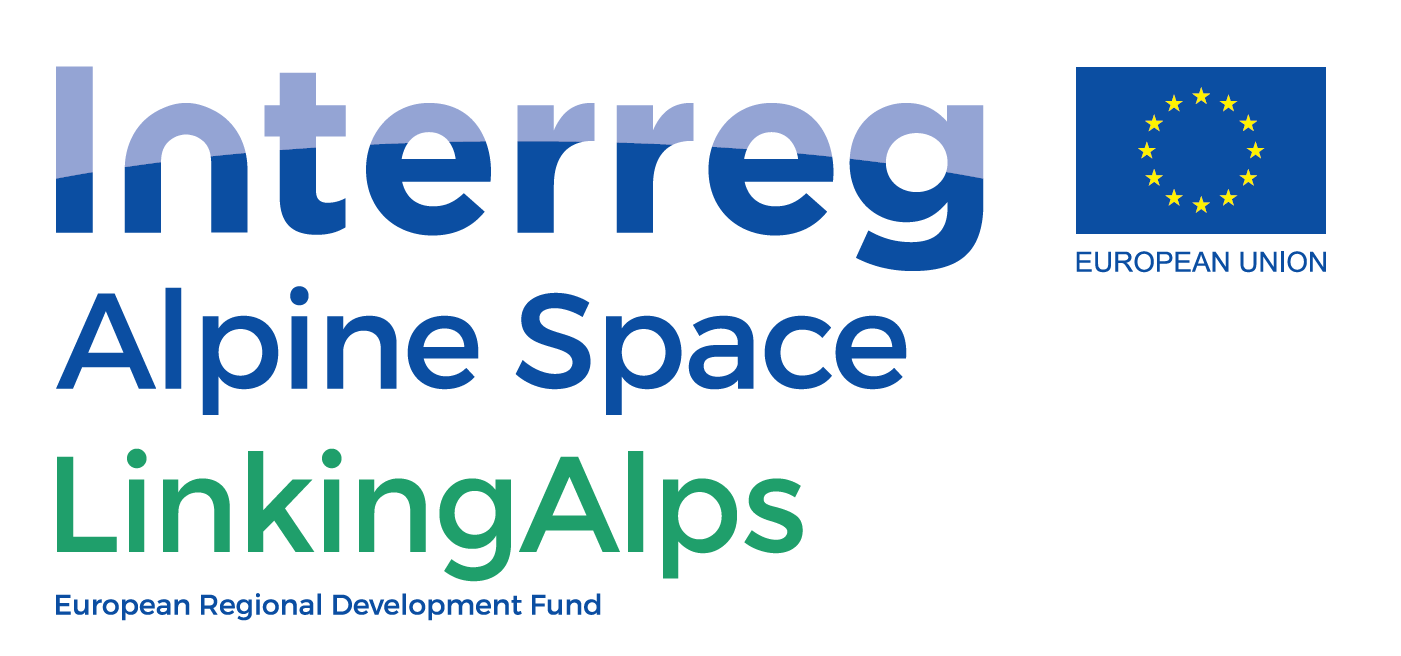Linking of existing transnational travel information services for a multimodal and environmentally-friendly mobility in the Alpine region
How can cross-border travel information in the Alpine region be improved? The LinkingAlps project aims to answer this question.
Cross-border travelling often faces the problem that travel information for the entire route is not visible at a glance. In most cases, travellers have to switch between the information systems of the different operators, regions or countries in order to plan their entire journey. The LinkingAlps project addresses this problem in the Alpine Space (AS). The aim is to create a standardised exchange service of travel information between the individual travel information service providers. In this way, information can be exchanged between the individual information systems and compiled into a continuous travel chain. Travelers can thus view the entire trip from start to destination on a single service.
The recently completed LinkingDanube project has proven the feasibility of a uniform exchange of information in the form of the Open Journey Planner (OJP) developed in the project. Now LinkingAlps will bring OJP to next level, by providing an operational service in the Alpine Space. The Alps are one of the most popular holiday destinations in Europe and therefore have a high travel volume. Important Alpine transit routes run through several countries and regions, such as the Brenner route. For this reason, there is a need for seamless and high-quality travel information for travellers.
With partners from Austria, Germany, Italy, Slovenia, Switzerland and France the three-year project aims to establish a standardised exchange service for travel information so that the information can be integrated to one single service providing seamless travel information across operators and borders.
The main objective of LinkingAlps is to foster the shift from motorized individual transport towards low carbon mobility options such as public transport, railways and alternative modes of transport like on-demand transport. By using innovative tools and transnationally aligned strategies for linking information mobility service, the options for low carbon mobility will be increased, by offering seamless mobility chains for passenger. Mobility information services and travel information across borders, operators and modes will be shared within the project partners, to offer the best option for the end user. The approach includes pilot activities and testing for a decentralised, transnational journey planning system.
We will develop a decentralised network of travel information services. This network will be created by interlinking existing regional or national journey planner services with focus on multimodal (low carbon) transport (public transport, railways, new modes) through a standardised exchange service. This exchange service will be based on the Open Journey Planning (OJP) approach, which is fully compliant with the provision of the Delegated Regulation 2017/1926 on the provision of EU-wide multimodal travel information services, that is supplementing the European ITS Directive (2010(40. By exchanging travel information and making high-quality data available in the network, LinkingAlps will ease the access to low-carbon mobility options and provide seamless, cross-border information through end-user services for tourists and for citizens, in particular for daily commuters so that they change mobility behaviour. Travellers will be able to access information on mobility services also outside of their region in one single service, plan their trips from door-to-door by using sustainable transport modes and receive up-to-date information (real-time) as the data will be provided by existing service providers in the regions that are linked together in a decentralized manner.
We know that this is not a purely technical issue. Besides of a technical architecture a viable operational model will be elaborated that guarantees the operation of the network after the end of the project. In the project, we will therefore develop a common transnational organisational and operative framework in order to enable durable service.
Providing this strategy and a decision-support handbook we will support public decision makers (inside and outside the project) to uptake the results and become part of a decentralized, distributed system for linking mobility information services across the borders to foster the access to more sustainable passenger transport.
The project brings together 14 partners from six Alpine Space countries that tackle the common challenge. Within LinkingAlps the travel information service providers committed themselves to make their data accessible over an API (Application Programming Interface) service so that end user services can build-up to provide cross border routing.
Following Partners are working together within the LinkingAlps projects:
The project started by 1st of October 2019 and will run until the 30th of June 2022. LinkingAlps is co-financed by the European Regional Development Fund through the Interreg Alpine Space programme.

Get in touch with LinkingAlps!